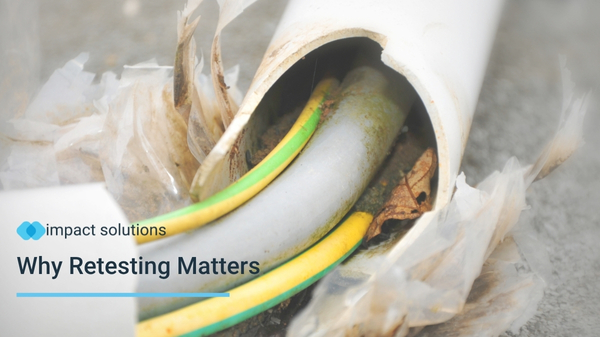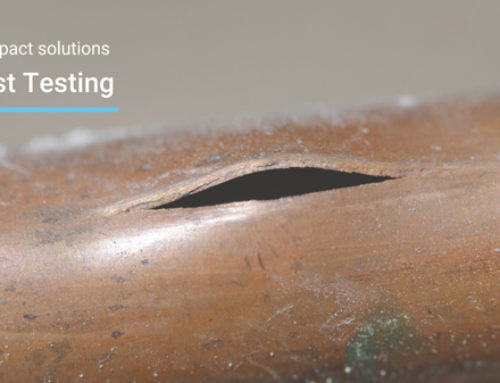In engineering, construction, manufacturing and R&D; material testing plays a crucial role in establishing product reliability, safety, and regulatory compliance. However, while most sectors know when to test, fewer have a clear policy for when to retest materials.
Over time, even certified materials can degrade, become non-compliant, or behave unpredictably due to storage, supply chain changes, or updated testing standards. In this article, we’ll explore seven clear signs it’s time to retest your materials, which can help catch small issues before they become expensive failures.
1. Stored Materials: When They Need Retesting and Why
If materials have been sitting in storage, especially in uncontrolled environments, they may no longer perform as originally tested. Environmental exposure can accelerate degradation of properties like tensile strength, ductility, or surface integrity.
Common warning signs:
- Corrosion, discoloration, blooming, or pitting
- Brittleness or surface cracking
- Signs of UV or thermal degradation
- Odours
Retesting stored materials ensures you’re not basing critical design or production decisions on outdated performance data. Accelerated aging can also help predict safe storage times and conditions to ensure performance of parts when they are installed.
2. Supplier Changes and the Need for Material Retesting
Switching suppliers, even when ordering the same type of material, introduces risk. Manufacturing processes, raw material sources, and quality control practices can vary significantly from one supplier to another.
Staying with the same supplier can also have risks due to potential changes in the supply chain, upstream, which may have occurred.
Why this matters:
- New suppliers may use different additives or treatments
- Even the smallest structural or material differences can impact strength, hardness, or fatigue performance
Retesting new supplier batches helps verify consistency and protect your supply chain.
3. Product Failures? Material Retesting Could Reveal the Cause
If a product is underperforming or experiencing premature failure in the field, material issues could be the root cause. Even slight deviations can create downstream problems.
Retesting helps identify:
- Contamination or improper processing
- Changes in treatment or composition
- Batch-specific issues not previously detected
- Dimensional inconsistency
It’s one of the fastest ways to isolate whether the issue is material-related—or lies elsewhere.
4. New Applications? Retest Materials to Ensure Performance
Even if the material hasn’t changed, a new type of use might demand different performance characteristics. Increased temperature exposure, new load conditions, or different environmental stressors can make prior test data irrelevant.
Examples where retesting is critical:
- Moving from indoor to outdoor applications
- Scaling up product dimensions
- Introducing mechanical fasteners, welds, or adhesives
Retesting materials for new designs ensures your data reflects real-world use.
5. High-Risk Applications Require Retesting for Compliance
If a material supports life-critical, load bearing, or safety-related functions, retesting at scheduled intervals is often required by internal protocols or regulatory bodies.
This is especially true for industries such as:
- Aerospace
- Medical device manufacturing
- Transportation and rail
- Civil infrastructure
Retesting ensures continued compliance and protects both reputation and end users.
6. Updated Standards? Retesting May Be Required
Materials testing standards evolve over time. ASTM, ISO, and other governing bodies regularly update test methods, tolerances, and reporting formats to reflect new technologies and best practices.
If the last test used an outdated method, it might not:
- Meet current customer specifications
- Pass certification or third-party audits
- Hold up in legal or regulatory review
Periodic compliance testing helps future-proof products and maintain confidence with clients.
7. Process Changes? Validate with Material Retesting
Any significant modification to manufacturing processes, from machining to treatment, can impact material properties.
Retesting is advised if:
- There is change in any material suppliers or additives
- Alter existing manufacturing parameters
- Upgrade, replace, or recalibrate equipment
Even minor changes can affect mechanical or chemical performance, making retesting essential for quality assurance.
Why Choose Impact Solutions?
Retesting is not a luxury—it’s a critical step in maintaining material performance, compliance, and product integrity. By knowing when to retest, you can prevent failure, stay compliant with the latest standards, and ensure your materials are ready for real-world conditions.
Impact Solutions’ UKAS accredited laboratory is well equipped to handle your retesting requirements, with an expert team that can walk you through the testing process and your results.
Contact us today to find out more
Follow us on LinkedIn and Facebook for more news and updates regarding our services.





